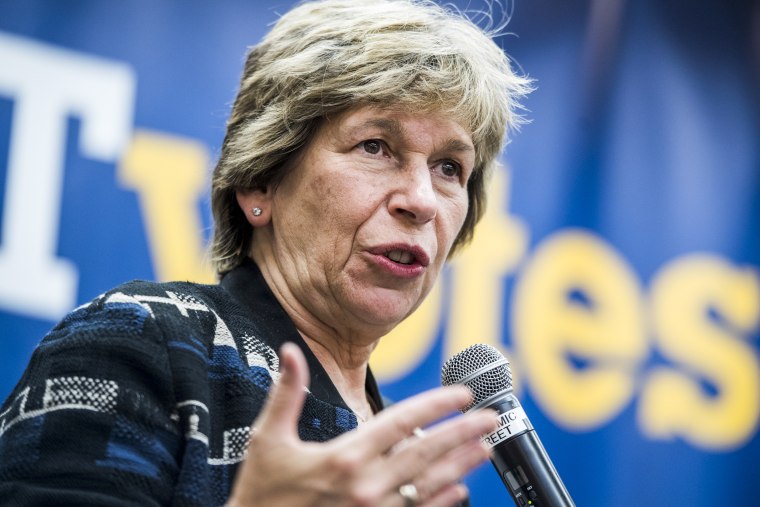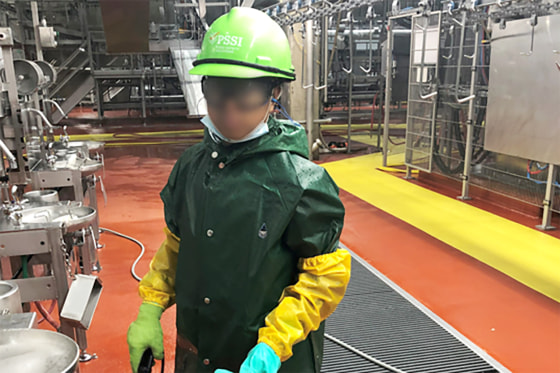Trustees at U.S. public pension funds with over $3 trillion under management are ramping up their oversight of labor practices at companies owned by private-equity firms after a report from the country’s second-largest teachers’ union detailed recent lapses at 10 of the largest firms’ acquired entities.
The report, published Tuesday by the American Federation of Teachers, which represents 1.7 million educators, health care workers and government employees, focuses on troubling labor practices at companies owned by some of the country’s largest private-equity firms. The report cites mass layoffs, forced labor, child labor and anti-union activities, and it says such practices pose a financial risk for pensioners whose retirement savings fuel private-equity operations.
“The AFT fights every day to uphold workers’ retirement security,” Randi Weingarten, the union’s president, said in a statement. “But that future and our investments cannot be dependent upon practices that harm fellow workers in the name of profit.”

More than 50 AFT members sit on 27 public pension fund boards that oversee trillions of dollars in investments. Known as the AFT Trustee Council, they reviewed the report’s findings at the union’s annual convention this week in Houston. A key takeaway in the report: Pension fund trustees must press private-equity firms to do better for the employees of the companies they own. Doing better by employees translates to better investment returns, the report contends.
Private-equity firms use borrowed money to buy companies that they hope to sell in a few years at a profit. Independent academic research shows that such leveraged buyouts result in far more bankruptcies than acquisitions that use less debt, and the deals can result in significant job losses for rank-and-file workers. Roughly 12 million people are employed by private-equity-backed companies, according to the American Investment Council, the industry lobbying group.
Among them are workers at Packers Sanitation Services Inc., a company that cleans slaughterhouses and is owned by the Blackstone Group, a New York-based private-equity giant. Last year, the Labor Department alleged PSSI had hired over 100 children to clean its facilities across the Midwest, some as young as 13 years old, NBC News reported. Blackstone, who installed executives on the PSSI board after it bought the company, said the firm did not know children had been hired to clean the slaughterhouses. PSSI also said that it did not know the workers were children and that it had “a zero-tolerance policy against employing anyone under the age of 18.” It paid a $1.5 million fine.
For decades, public pension funds like the California Public Employees’ Retirement System, the Teacher Retirement System of Texas and the New York State Common Retirement Fund poured billions into private equity to generate investment gains for retirees. But recently, private equity’s outsize returns have diminished, and higher interest rates have created problems for the firms’ heavily indebted companies. In addition, private-equity firms are having trouble selling the companies they own, because the market for initial public offerings has not been accommodating and interest rates have hurt the companies’ operations. That has prevented investors from cashing out their stakes and raises questions about the industry’s business model.
Last week, the $200 billion Teacher Retirement System of Texas announced it would begin reducing its investments in private equity by $10 billion this fall. Other pensions have increased their allocations.
The AFT report, titled “Managing Labor Risks in Private Equity,” details the recent bankruptcy of Steward Health Care, a 31-hospital system that had been owned by private equity. The 10 private-equity firms cited in the report include the country’s largest and most prestigious — Apollo Global Management, Blackstone, Carlyle Group and KKR.
Apollo, Carlyle and KKR did not respond to emails seeking comment.
A spokesman for Blackstone said in an email: “As the report notes, we believe that being attentive to the wellbeing of our portfolio companies’ employees is foundational to building successful businesses — and is aligned with our duty as fiduciaries.” He added that Blackstone “stands unequivocally against child labor violations.”
The report highlighted the PSSI matter as an example of positive outcomes that can result amid scrutiny of private-equity-backed firms. After the Labor Department’s action and media coverage, Blackstone reached an agreement with the United Food and Commercial Workers union to offer union representation at the PSSI locations. Under the agreement, the AFT report noted, about 1,200 workers — more than half of them slaughterhouse cleaners — have become union members with increased wages, better benefits and health and safety provisions.
AFT said it compiled the report at the request of its members who are trustees of public pensions but who say they often have insufficient information about their pensions’ investments to understand their risks and fulfill their fiduciary duties. That is especially common with opaque private-equity investments.
“We need more transparency — we can’t make a really good fiduciary decision unless we know who they are,” said Jacquelyn Price Ward, vice president and investment chair of the $12.6 billion Chicago Teachers’ Pension Fund. Speaking for herself, not the overall board, she added: “They don’t want us to know, but we have to figure out a way to know. I want to see the underbelly of the snake in all areas.”
The Chicago pension fund has provided benefits for public school teachers in the city since 1895. Ward said it has an 8% allocation to private equity and is dropping that back to 5%.
“Will we be successful?” asked Paula S. Barajas, a trustee of the Chicago pension, also speaking for herself, not the board. “That depends on individual trustees across the nation. Success depends on how far trustees are willing to push and draw a line in the sand.”

